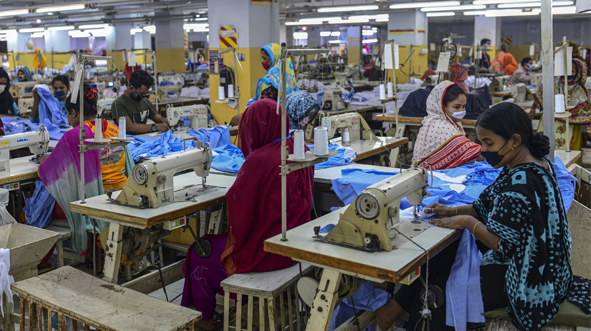Tough days ahead of the RMG sector

The RMG sector is caught now a barrel of crises brought by the Russia-Ukraine war just when the sector seemed ready to pledge again after the shock caused by the Covid-19 pandemic.
According to industry insiders, the war managed to shift the market trends as a direct consequence of the war and inflation has become a key concern for consumers which stood at a record high of 10.7% in October.
Moreover, rising energy prices are sapping the purchasing power of European consumers and food products have also been affected as well which has thrown many of them in a situation to choose either food or clothes.
According to various projections, European shoppers are likely to reduce their Christmas purchases by up to 22% which will disallow the top brands, and importers of Bangladesh apparel products, to clear their whole stock.
Speaking to the media, Faruque Hassan, president of the Bangladesh Garment Manufacturers and Exporters Association (BGMEA), said that some buyers have been holding orders for the last 2 or 3 months.
Their big challenge is exactly the European buyers how much will spend this Christmas buying, he added saying that now they have to look at the policies of many buyer countries as the exports will depend on how much subsidy a country is giving on energy as Europe is going through an energy crisis.
Mohiuddin Rubel, director of the BGMEA told the media that due to the recession in the US, Canada, and Europe, the customers are not able to buy like before as their purchasing power is curbed for inflation, energy crisis, and a possible food crisis.
Speaking to the media, Shovon Islam, managing director of Sparrow Group said that they have already shipped the Christmas goods and now spring and summer sales depend on it.
If the Christmas sale can’t touch its target, brands won’t be able to order the product for the next season which will again put a negative impact, he added.
Moreover, the European countries may face further catastrophes as Russia reduces gas supply and leaks surface on two Nord Stream pipelines in the Baltic Sea.
Speaking to the media, Fazlee Shameem Ehsan, managing director of Fatullah Apparels Ltd, said that the European buyers are actually spending more on food and fuel now and this downward trend in exports may continue for the next few months.
Due to the acute domestic energy and power deficit, the export-oriented industries and manufacturing units are facing a crisis as there is no electricity for an average of four to five hours daily in the industrial units which increased the additional cost of Tk3-Tk4 crore per month.
Moreover, production optimization also declined.
Due to gas shortage, textile mills have been operating at only 30%-40% of their total production capacity, sector people told the media.





Comment here